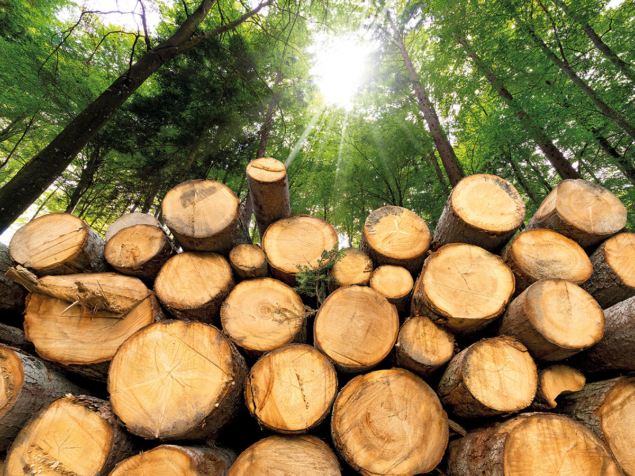A simple definition of biomass Energy would be: It is a form of renewable energy, often gotten from plants and animals. Despite being a renewable energy source, biomass energy brings forth its fair share of troubles to this world while also maintaining a balance of the good it provides.
This article discusses both the good and the bad to keep you well informed if you wish to join the biomass bandwagon.
Pros of Biomass
The positive side to Biomass Energy is vast. Here are a few reasons why you should consider switching to it:
1. Renewable

Biomass, having been sourced from the vast forests, crops, and daily produced bio-waste, makes it readily available. The reasons for terming it as a renewable source of energy are:
- Once tree harvesting happens, replanting acts to replace the ones used.
- Bio-waste gets produced each day, from food waste to animal waste and human waste.
- All biomass gets energy from the sun, which means that the production of biomass is continuous.
Biomass production happens in large volumes, at a higher rate than their conversion into energy, and needs a broader implementation worldwide.
2. Waste Reduction
Landfills are contributors to air pollution through the emission of Greenhouse Gases. They are also significant contributors to land and water pollution due to the hazardous and toxic materials dumped in these landfills.
Landfills can also adversely affect human health.
Biomass reduces these landfills’ effects by decreasing bio-waste contributing to the landfills.
3. Reliability
Biomass energy plants can be turned on or off based on the power demand. Biomass sources can be accessed all through the year and are not dependent upon the weather like other renewable sources, for example, wind and solar.
4. Reduced Dependence on Fossil Fuels
Fossil fuels have many negatives associated with them, such as pollution and conflict, among others. With biomass energy production, unnecessary power conflicts are avoidable since they are readily available and produced daily.
5. A Low Carbon Footprint

The amount of carbon produced by biomass is only the amount the biomass produced during its lifetime. The biomass energy production process does not emit carbon that was not already part of nature.
6. Relatively Cheaper Compared to Fossil Fuels
The cost of setting up for Biomass is relatively cheaper as it relies on materials that can be easily reached, compared to fossil fuels which need drilling to extract.
Cons of Biomass
Biomass energy is not without fault, so here is the downside to using it as a source of energy.
1. Cost

Some of the costs involved in Biomass energy production include;
- The set up of a power plant, which depends on the size of the plant, has the following needs;
- Costs involved in the land purchase or leasing
- Construction costs
- Equipment costs, which include purchasing biomass storage related equipment, pumps, and valves, such as the double eccentric valve by XHVAL, an industrial valve factory, click here to find out more.
- Extraction and transportation of the materials to the power plants
- Production costs
- Hiring costs, which may go higher if you need to hire professionals in Biomass production
The costs involved with biomass energy production may be promising compared to other energy sources. However, they are reasonably capital intensive.
2. Space Consumption
Biomass power plants require a lot of land to set up. These plants also required that they be close to the source of bioenergy. In such a case, you need more land for growing organic matter.
For example, a biomass power plant using trees as the source of energy requires more land for planting trees, increasing the amount of land per unit production of power.
3. Lesser Efficient than Fossil Fuels
Biomass might be a realistic option to fossil fuels but falls short of fossil fuels’ efficiency on power production.
4. Environmental Impact

Biomass impacts the environment in the following ways;
- May lead to deforestation in cases where companies do not effectively replace the forest cover used in power production.
- Clearing forests may disrupt nature by destroying natural habitats.
- Plant-based biomass energy production demands a lot of water, making these places more vulnerable to drought.
- Biomass may have a lesser carbon footprint than fossil fuels. However, producing bioenergy may result in the production of pollutants into the air. A good example is using animal and biowaste to produce energy, which leads to an increase in methane gases in the atmosphere, which negatively affects the Ozone layer.
Conclusion
Every positive thing has a negative aspect to it. Such is the balance of life.
Biomass energy production is a better option than other energy sources in cost-effectiveness, a lesser carbon footprint, and some reliability. However, it does fall short of a number of these energy sources in some aspects. For example, as discussed, it is less efficient compared to fossil fuels.
Relatively, bioenergy production may seem like a cheaper option, but it is capital intensive. It requires money for construction, equipment installation, land purchase, employee fees, transportation fees, among others.
The verdict is that biomass is suitable for;
- To replace fossil fuels, especially in places where they negatively affect the environment.
- As a power backup option to the grid, in cases where electricity fluctuates on a daily.
- Bio-waste utilisation..
- As the primary source of electricity in remote areas with no access to electricity
Investing in this may yield the expected results, but like any other business, it comes with risks that, when well managed, may produce profits.






